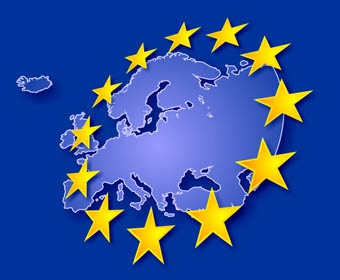EU data roaming regulations and the rise of personalised user policiesEU data roaming regulations and the rise of personalised user policies
On July 1 2009, European Union mobile roaming tariffs regulation came into force cutting retail voice, retail SMS and wholesale data charges across the EU. With the European Commission identifying data roaming charges as a principal cause of bill shock, it is also forcing operators to put strong anti-bill shock measures in place.
October 5, 2009

On July 1 2009, European Union mobile roaming tariffs regulation came into force cutting retail voice, retail SMS and wholesale data charges across the EU. With the European Commission identifying data roaming charges as a principal cause of bill shock, it is also forcing operators to put strong anti-bill shock measures in place.
The new rules seek to protect consumers from bill shocks by introducing real-time subscriber spend notifications and a cut-off mechanism once the bill reaches €50, unless they choose another cut-off limit. Operators have until March 2010 to put this cut-off limit in place.
Operators have been understandably concerned by the prospect of shrinking revenues, with losses being estimated by some operators at €6 billion, and their focus must now move to one of finding ways to replace that lost revenue. While the EU regulations help address subscriber fears of unexpectedly large bills when they return from their holidays, they do little to encourage increased usage. So it will be up to the operators to persuade subscribers to use their devices more.
Recent YouGov research on the roaming habits of UK subscribers, commissioned by Openet, found that two-thirds of people who had holidayed abroad this year, and who have an internet-enabled phone, did not use data services when on their holidays. An obvious source of replacement revenue must surely be to get these customers to take their powerful, internet enabled devices out of their suitcases.
While operators do offer roaming packages today, these packages are most appealing to frequent (business) travellers, and usually require the customer to sign-up in advance of travelling. This tends to ignore the occasional and less savvy users; those who could benefit from data access but are not doing so. If EU operators are to claw back roaming revenues, operators will need to reach these occasional and infrequent users.
Mobile operators are increasingly central to subscribers’ internet experiences as more and more users become familiar with mobile internet services. With smartphones predicted to become mass-market devices in developed markets, compelling and addictive social networking applications such as facebook, bebo, twitter, and flickr have fast become part of the fabric of people’s everyday lives. But consistency of access is crucial, it cannot stop at national borders. Subscriber needs are changing to the point where connectivity is now expected from wherever they are.
Mobile operators who want to manage the customer experience must do so for customers when roaming and, convince their subscribers to pay for these data-based services. This means being able to make context-relevant offers. This will change the emphasis from customers having to subscribe to a roaming package prior to departure, to one where they can select the appropriate bundle for their individual service, such as Twitter-only, or services while roaming.
Personalising service at both the application and billing level will see operators rise above confusing, cost/MB or volume quota pricing strategies. They will be able to deliver their customers more convenient, attractive offers based on what they need and what they are doing.
While operators could address EU regulation as a tactical issue, the regulation can be considered the thin end of the personalisation wedge. With smarter devices and data services, it is a certainty that subscribers will want to exert ever greater control over their service. If mobile operators are to remain at the centre of the customer experience, and not to suffer from disintermediation, they will need to enable more intelligent, real-time subscriber and service aware decisions.
Putting in place the capabilities to improve the customer experience will provide revenue and differentiation opportunities. Policy-based controls such as parental and content controls, private/professional persona, URL filtering, notifications, time of day restrictions, quality of service will all be part of the ‘managing the anywhere network’ experience.
Of course, this could add a huge amount of complexity to the operator’s world. While these policies can be addressed in a piecemeal fashion, taking a centralised policy-driven perspective provides an extensibility that will allow an operator to maximise their return on investment and ensure holistic implementation of policies.
As operators attempt to create leaner, more flexible and cost-effective infrastructures, now is the time to take the opportunity to investigate if the architecture being put in place to address the EU data roaming regulations – which represents a step forward in terms of subscriber personalization – can form a foundation to support their broader personalisation and control initiatives.
If we stand back and look at the policies that operators might implement in strategic terms, we can see that roaming can be considered as just one of what will be a universe of subscriber- and operator-defined polices. These have the potential to transform the consumer experience, making it more affordable and attractive to use their various services at home and abroad. They also provide a basis for service plan innovation to replace revenues lost from enforced price cuts by the EU data roaming regulation.
Jonathan Downey is Director of Product Marketing for Openet
Webinar: EU Data Roaming Regulations and the Rise of Personalized Policies
Join Openet for a free webinar on Thursday the 8th October at 3pm UK time (4pm Central Europ) and discover:
The key requirements to address the EU Data Roaming Bill Shock regulation
Of a growing need for subscriber, session and service-aware policies
An extensible, coordinated strategy to delivering a more personalized experience, to support EU data roaming regulations and other policies
Speakers:
Patrick Sendek, VP Technical Sales, Openet
Thierry Van de Velde, Technical Marketing, Cisco
About the Author
You May Also Like










.png?width=300&auto=webp&quality=80&disable=upscale)


_1.jpg?width=300&auto=webp&quality=80&disable=upscale)